Also known as Bruddah Iz, Israel Kamakawiwo'ole captivated people across the globe with his rendition of "Over The Rainbow" before dying in June 1997.
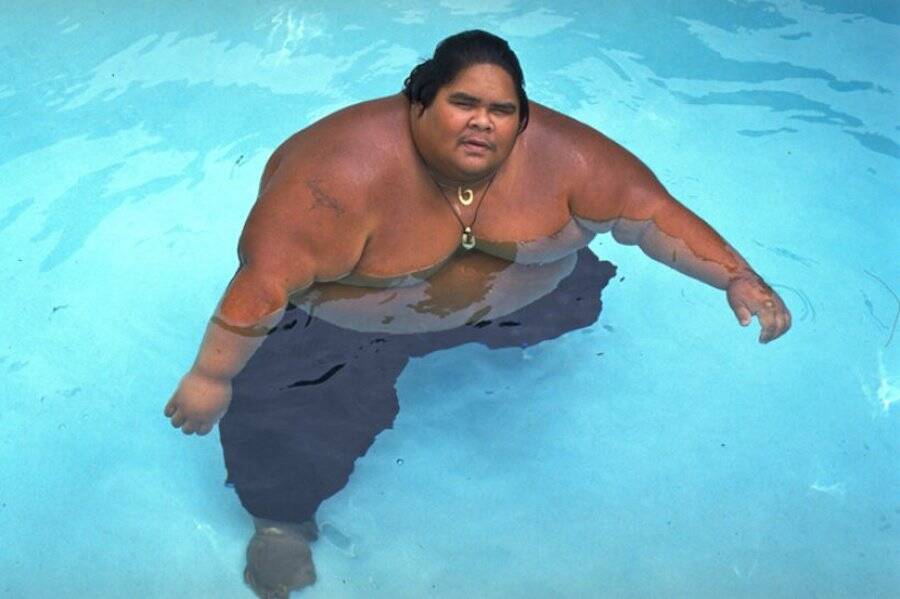
Universal MusicKnown for his version of “Over the Rainbow,” Israel Kamakawiwo’ole became one of Hawaiian music’s most iconic singers before his tragic death at just 38 in 1997.
Israel Kamakawiwo’ole could serenade an entire room into awestruck silence with only his voice and a ukulele. Before the beloved Hawaiian singer-songwriter also known as “Bruddah Iz” died at just 38 in 1997, he had that effect on people around the world time and again, thanks in large part to his iconic rendition of “Somewhere Over the Rainbow.”
Meanwhile, among Hawaii’s Indigenous community, Israel Kamakawiwo’ole is proudly remembered for helping his people fight for their very identity as an activist for state sovereignty. To this day, Israel Kamakawiwo’ole is widely remembered as the voice of Hawaii.
This is the captivating story of Israel Kamakawiwo’ole, from his one-of-a-kind music to his untimely death.
Israel Kamakawiwo’ole’s Love Of Music From An Early Age
Israel Ka’ano’i Kamakawiwo’ole was born in Honolulu, Hawaii, on May 20, 1959 to Henry “Hank” Kaleialoha Naniwa Kamakawiwoʻole Jr. and Evangaline “Angie” Leinani Kamakawiwoʻole, both of whom worked at a popular nightclub in Waikiki. Angie managed the club, while Hank served as a bouncer and drove a sanitation truck at the U.S. Navy shipyard at Pearl Harbor.
He quickly gravitated to the ukulele and began playing with his brother and cousin when he was 11. While it certainly helped that his uncle, Moe Keale, was a musician himself (and starred in Hawaii Five-O), Kamakawiwo’ole paved his own way.
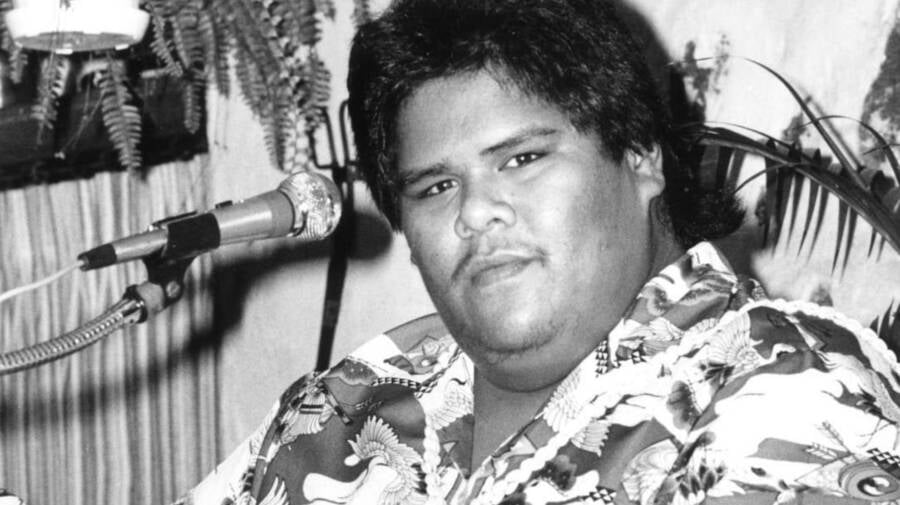
officializhawaii/InstagramIsrael Kamakawiwo’ole started playing the ukulele at 11.
While the time he spent with his cousin and brother was foundational, so too were the summers he spent with his grandparents on Ni’ihau. It’s not only the westernmost main island of Hawaii, but one that remains entirely populated by its Indigenous people. Only relatives, invited guests, government officials, and supervised tourists are allowed on it.
As a child, Kamakawiwoʻole became fascinated with the music of other popular Hawaiian entertainers, especially Peter Moon, Palani Vaughan, Keola Beamer, and Don Ho, and those influences would later be seen in Kamakawiwoʻole’s own music.
Bruddah Iz Forms A Band
Israel Kamakawiwo’ole was 17 years old when he formed Mākaha Sons with his older brother Skippy. Their music blended contemporary and traditional stylings, and it proved to be immensely popular.
Despite dropping out of high school and becoming dependent on drugs and alcohol, he found himself at a graduation party where most of his peers heard him sing for the first time. His friend Del Beazley has never forgotten that moment.
“As soon as Israel Kamakawiwo’ole opened his mouth and sang, that whole place went quiet,” said Beazley. “Every great singer has something special. It’s almost a nasal or head tone. And that thing just cut right through the air, stopped everybody in their tracks.”
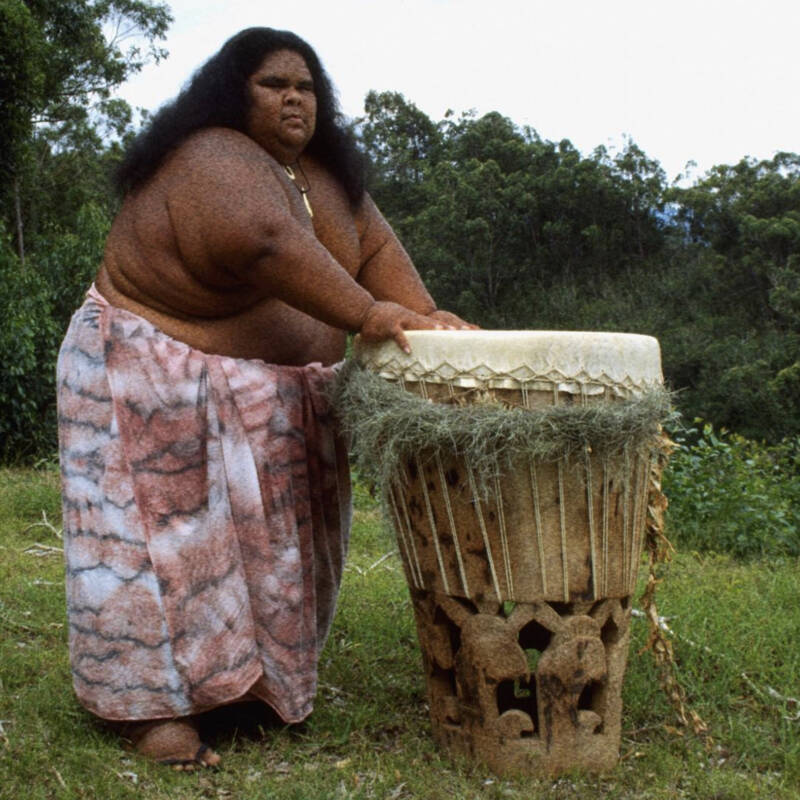
officializhawaii/InstagramLong after Israel Kamakawiwo’ole’s death at age 38 on June 26, 1997, his legacy lives on thanks to his beloved version of “Over the Rainbow.”
Mākaha Sons gave their Hawaiian brethren authentic songs of their homeland. It was a time when most Hawaiian music was bastardized commercial art aimed to satisfy the misconceptions of mainland America. This was, to the Hawaiians, known as hapa haole, songs that were more overtly sexualized and, frankly, racist.
Mākaha Sons, however, were seen as a major part of the Hawaiian Renaissance, which sought to restore the islands’ distinct cultural identity and move away from the tourism-based culture it had become known for.
Despite launching his career and finding his voice by speaking to and for his people, Kamakawiwo’ole suffered a major setback when Skippy died in 1982 of an obesity-related heart attack at the young age of just 28 years old. It was a tragic loss — but it also served as ominous foreshadowing for Kamakawiwo’ole’s own death 15 years later.
Israel Kamakawiwo’ole kept at it, however, and eventually changed his life forever with one simple recording in 1988. It was 2:30 a.m. when he drunkenly called recording engineer Milan Bertosa from a payphone at Sparky’s Bar, a notorious hub of Honolulu’s cocaine trade — and kindly requested an audience.
“Please, can I come in?” he pleaded. “I got this idea.”
Israel Kamakawiwo’ole’s Iconic Rendition Of “Over The Rainbow”
“And in walks the largest human being I had seen in my life,” Bertosa recalled, alluding to Israel Kamakawiwo’ole’s weight. “The first thing at hand is to find something for him to sit on. Then I put up some microphones, do a quick soundcheck, roll tape, and the first thing he does is ‘Somewhere Over the Rainbow.’ He played and sang, one take, and it was over.”
And that song would be requested on stage at every show until Israel Kamakawiwo’ole’s death.
While Kamakawiwo’ole’s debut solo album in 1990 included that song, it was produced with added instrumentation and formed into a medley with a cover of Louis Armstrong’s “What a Wonderful World.” It was the acoustic version that would conquer the world — and that version, which he’d been tinkering with for years, remained in Bertosa’s archives for years, a technically imperfect song recorded in one take, with changed lyrics and the occasional bad chord.
Perhaps those imperfections only made it more human.
Only in 1993 while working on Kamakawiwo’ole’s follow-up album Facing Future did Bertosa realize it had to be included. He was right, as the album went platinum as one of Hawaii’s highest-selling records ever.
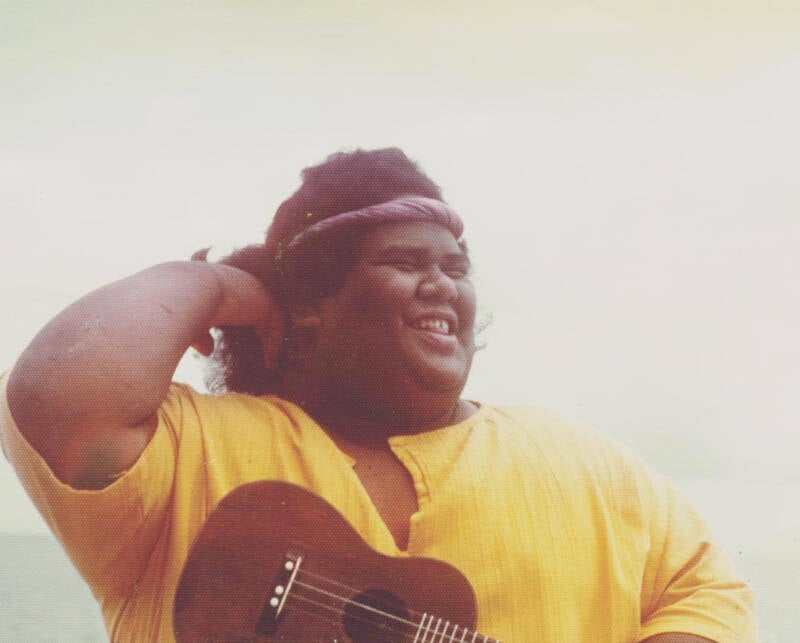
Mountain Apple Company/InstagramHawaiian singer Israel Kamakawiwo’ole touched the world with his ukulele version of “Over The Rainbow” before he died at just 38.
“It was just that special,” he recalled. “Whatever was going on that night, he was inspired. It was like we just caught the moment.”
It couldn’t have come at a better time for Kamakawiwo’ole, either. By that point, he had a family of his own, a wife and child he was struggling to take care of because he was making so little on welfare. The breakout success of Facing Future, however, put an end to Kamakawiwo’ole’s financial struggles.
While that song was co-opted for everything from Rice Krispies to cologne advertisements, Hawaiians gravitated to “Hawai’i ’78.” The track imagined what their ancestors must have felt, seeing the islands overtaken by profiteers who cared not an inch for culture but did anything for money, with its powerful and resonant lyrics:
“Could you just imagine they came back
And saw traffic lights and railroad tracks
How would they feel about this modern city life?”
Unfortunately, financial security and rising notoriety couldn’t prevent the inevitable — and Kamakawiwo’ole’s health issues, much like his brother’s before him, brought his life to a sudden, early end.
Israel Kamakawiwo’ole’s Death And The Tragic Story Behind It
Toward the end of his life, Israel Kamakawiwo’ole’s weight became unsustainable. He was unable to perform and carried an oxygen tank with him. He frequently stayed in the hospital where friends smuggled him Oreos, despite his brother’s early death. And despite an increasing need for a forklift to get on stage, he carried an inner peace that never left.
“I’m not scared for myself for dying,” he said. “Because we Hawaiians, we live in both worlds. When our time comes, don’t cry for me.”
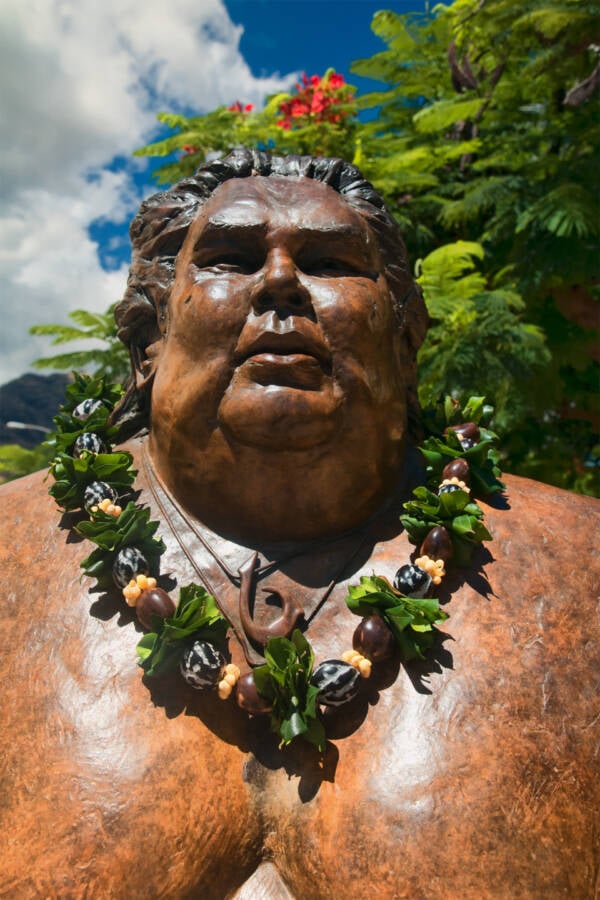
Wikimedia CommonsA monument on Oahu in Israel Kamakawiwo’ole’s honor.
On June 26, 1997, The Honolulu Star-Register announced that Bruddah Iz, the voice of Hawaii, had died at just 38 years old. Israel Kamakawiwo’ole’s cause of death was respiratory failure. Crying callers phoned into the KCCN-FM radio station for hours, while his family and friends built a casket with wood from all the islands.
On the day of his funeral, the flag flew at half-mast.
About 10,000 people gathered in the ocean to watch his ashes be paddled to Makua Beach. Israel Kamakawiwo’ole’s death made for a day of mourning for what seemed like all of Hawaii. Hundreds paddled alongside his ashes, as the respectful air horns from trucks on land echoed across waters, and Israel Kamakawiwo’ole’s ashes were scattered.
The Proud Legacy Of A Big Man With An Even Bigger Heart

Universal MusicThe funeral of Hawaiian legend Israel Kamakawiwo’ole.
Bruddah Iz was six-foot-two and obese his entire life and weighed over 1,000 pounds when he died in 1997. Israel Kamakawiwo’ole’s weight hovered around an average of 750 pounds throughout his life.
But Bruddah Iz’s physical presence was nothing compared to his love for the Hawaiian people. As a lifelong proponent of Hawaiian sovereignty against tourism and corporate encroachment, it’s no wonder that the entire island of Oahu gathered to send him off.
Kamakawiwo’ole’s body was even lain in public at the state Capitol courtyard. This honor had only previously been awarded twice, and for two members of government. The Hawaiian governor at the time, Benjamin Cayetano, received some criticism for the decision, but he stood by it.
“Israel was a state treasure. He was a giant in his field,” he said. “He had achieved a special status. The state Capitol is a facility that’s owned by the people of the state and symbolizes the public trust.”
For those far removed from Hawaii and its Indigenous culture, Israel Kamakawiwo’ole is merely the faceless voice of various commercials and Hollywood films. For Hawaiians, Israel Kamakawiwo’ole was the gentle giant who died too soon — but galvanized his people before he did.
After learning about Israel Kamakawiwo’ole, Hawaii’s beloved Bruddah Iz, read about the tragic death of Chris Cornell. Then, learn about the murder of Selena.





